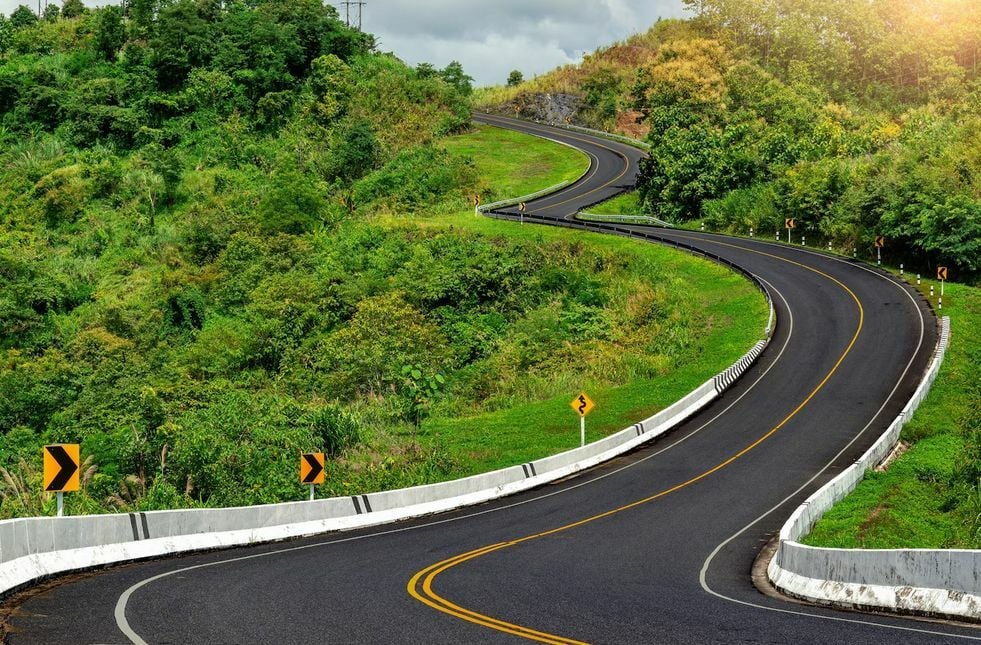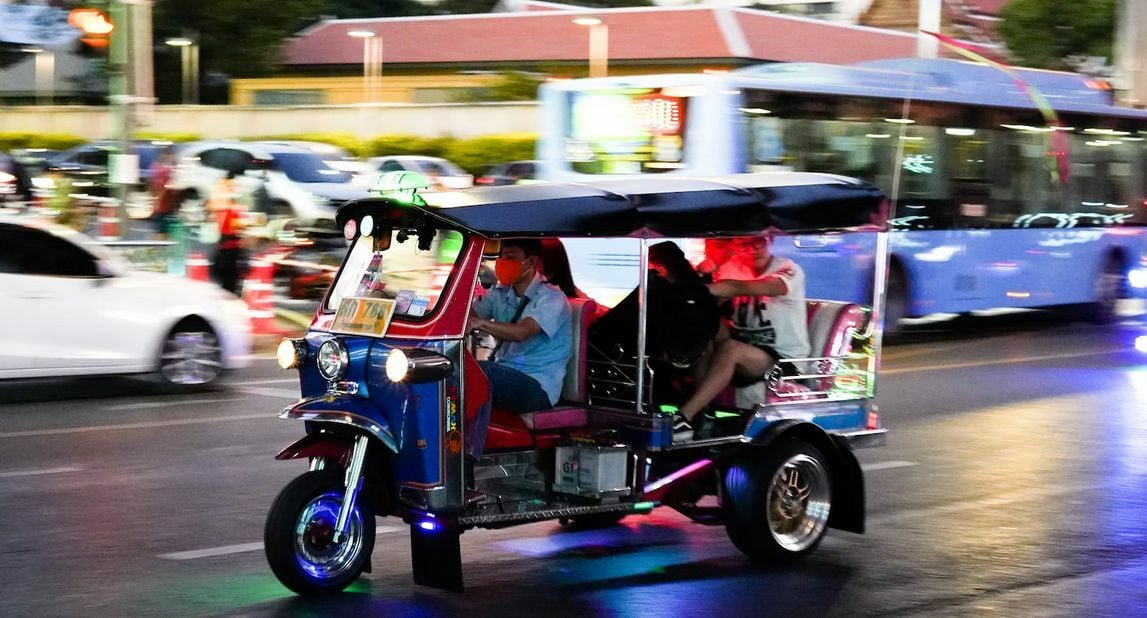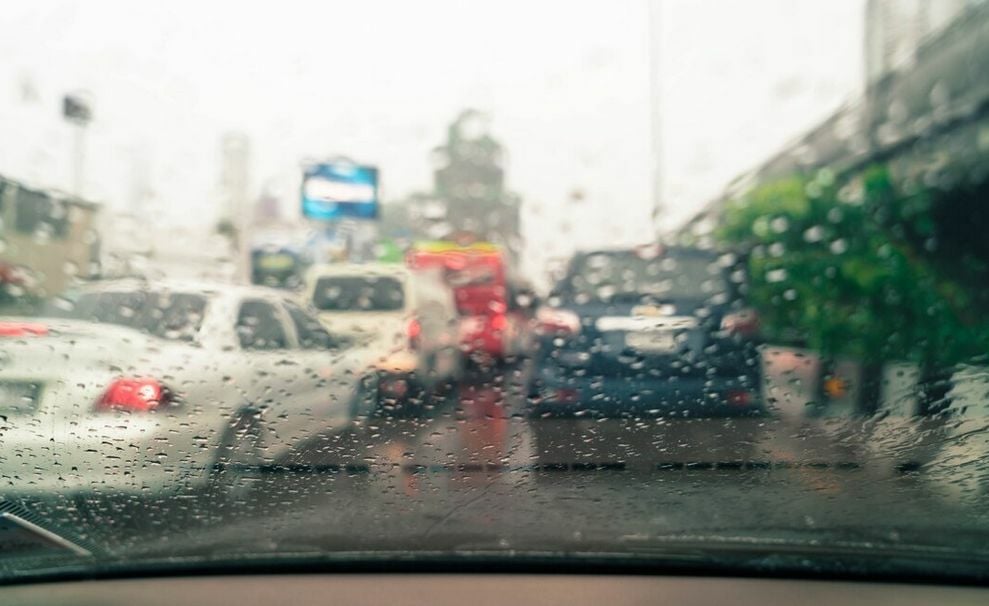Reducing the risk of accidents in Thailand: Road safety and personal safety tips

In the lush and vibrant landscapes of Thailand, an enchanting mix of ancient heritage and modern dynamism, the excitement of exploration is undeniable. However, an often-overlooked aspect of travel—especially in a country such as Thailand—is road safety, particularly when it comes to road travel, which can be as unpredictable as a tropical storm.
With its bustling cities, tranquil beaches, and forest-clad hills, Thailand beckons travellers with the promise of discovery and the thrill of the open road. Yet, the very allure of these winding paths can harbour risks that are best met with preparation and caution.
Embark on a journey together, one that ensures our trip is marked not by the unexpected sting of misfortune but by the joy of experiences cherished safely.

Embracing road safety wisdom
Traffic in Thailand throbs with its own unique pulse; it’s a living, breathing entity that demands respect. Road safety is crucial in a land where motorbikes weave dangerously through traffic, where tuk-tuks chime with the rhythm of the streets, and cars vie for space on the roads.
Understanding the traffic beat
Before you take the wheel in Thailand, immerse yourself in the unique rhythm of its traffic. Here, vehicles drive on the left side, which might feel familiar for some but foreigners often face issues with this initially. Familiarising yourself with not only the rules of the road but how the locals drive as well is imperative.
Don’t rush into driving. Instead, pause and watch the flow, the subtle interactions, and manoeuvres that dictate road etiquette. Learning these unwritten laws from the roadside first can make the difference between feeling out of place and moving with the confidence of a local behind the wheel. Take this to heart, and steer with newfound understanding.

The shield of protection: your gear
Wearing a helmet is not merely a suggestion—it’s your shield against the greater dangers that come with the freedom of a motorbike ride. Ensure that your helmet is not just worn, but secured. For added safety, donning bright clothing, especially at night, will make you more visible as well which avoids accident risk.

The ever-vigilant eye
Navigating Thailand’s roads demands constant vigilance. Here, predictability is a luxury but you will encounter more chaotic scenarios like roaming dogs or people who might be crossing the road on a whim. At the same time, whole families will often balance precariously on single motorbikes and Tuk-tuks might halt without warning.
It’s a vibrant tableau, ever-shifting, challenging even the most seasoned driver. Embrace the unpredictable and remember that your attentiveness is your best ally on these bustling byways. Stay sharp, expect the unexpected, and let the dynamic rhythm of Thailand’s streets guide you safely on your journey.

Rain’s impact in road safety
When rain cascades down from the sky, it’s not just a welcome respite from the heat; it’s a subtle danger that is, transforming the road beneath your wheels. The reliable grip of dry asphalt will give way to a more treacherous and slick surface.
In response, some road safety tips are to modulate your driving—ease off the speed, let there be generous space between you and the next car, and if the road becomes more flooded, find a rest spot and let the storm pass. On rain-slick roads, patience and caution become your trusty companions, ensuring that joy doesn’t turn to jeopardy.

Navigating the night
When night unfurls in Thailand, a lively spirit awakens. The air buzzes with festivity where you will dive into the dark. More importantly at this hour, it’s more than crucial to stay grounded in awareness. With this, road safety is paramount and you will need to stay twice as vigilant as usual.
Keeping your belongings close
In crowded marketplaces, on picturesque beaches, and especially in the sardine-tight spaces of public transport, your belongings are a currency. For the safety tips keep them close. Use bags that close securely and consider using inside pockets or money belts. The less visible your valuables are, the less likely they’ll become someone else’s.

Communication: The local safety net
Being able to speak a little bit of the Thai language in Thailand can weave a stronger connection with locals and create a broader safety net. Learning basic phrases for directions, help, and emergencies can be a lifeline in unexpected situations. Your effort to speak the local language is often met with respect, and it can transform moments of doubt into bridges of understanding.
Summoning help with words
Knowing how to ask for assistance and signalling that you are in a state of concern can be as simple as saying “Chuay dai mai?” (which translates to “Can you help?”) or “Pood pasa Angrit dai mai?” (which translates to “Do you speak English?”). In high-pressure situations, using statements like these has the potential to make it easier to communicate with others.
The wisdom of numbers in road safety
You should always have important phone numbers, such as 1155 for the Tourist Police or 191 for the general emergency services, saved in your phone and possibly written down as well. When something unexpected occurs on a trip, the level of preparation and planning that a traveller has displayed shines through most clearly.

In the heart of Southeast Asia, Thailand invites you with a smile as warm as its sun. A land where every street corner turns a page, every market stall tells a tale, and every ride offers a new chapter of adventure. By weaving in these road safety tips, we can ensure the story of our journey in beautiful Thailand is as safe as it is unforgettable.
With mindfulness, as we prepare our compass and map, we allow the very best of our travels to unfold. Bon voyage, or in Thai, เดินทางปลอดภัย (dern thaang plod phai).
Latest Thailand News
Follow The Thaiger on Google News:


























